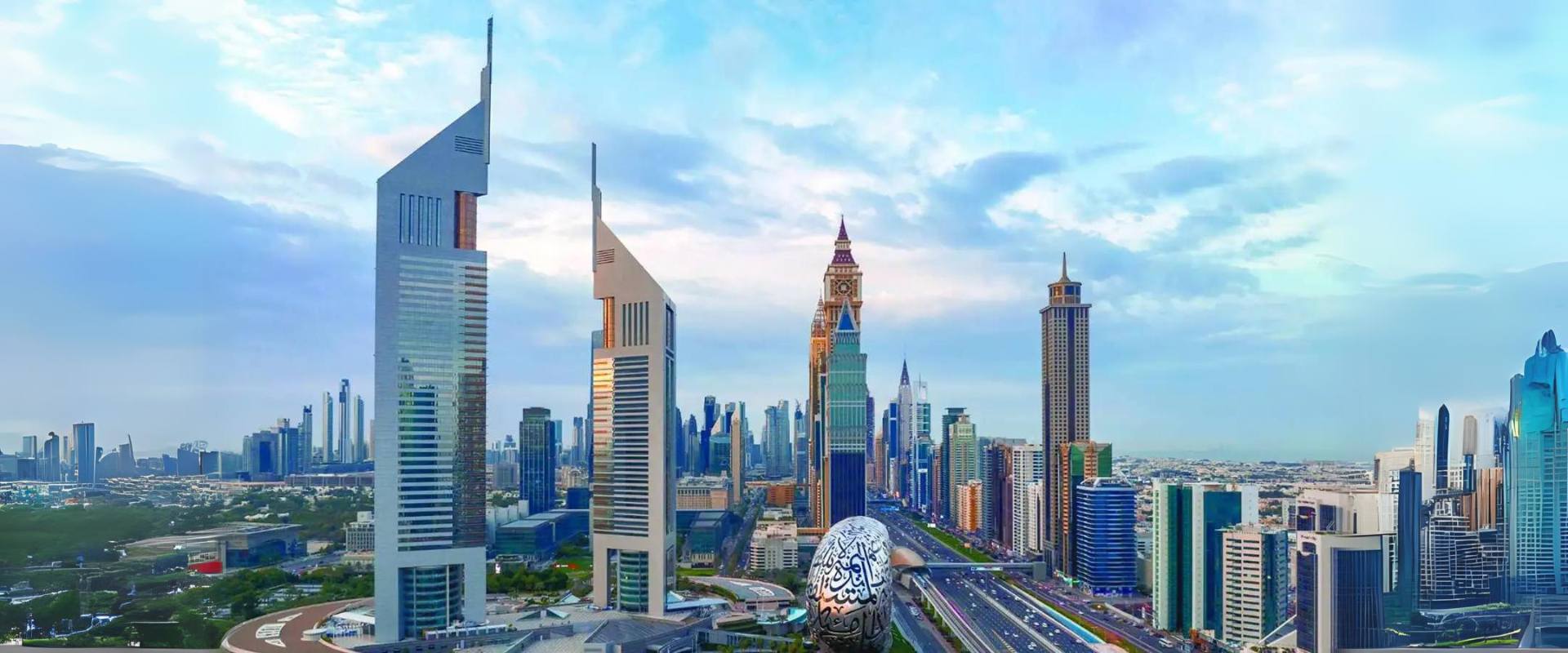Despite a declining global outlook, experts at a panel discussion projected that the UAE’s real estate market would expand in 2024. It is anticipated that Abu Dhabi and Dubai will deliver 8,000 and 34,000 units, respectively.
Robust economic fundamentals, government initiatives, and increased investor confidence are driving new opportunities for sustained growth across asset classes in the UAE’s rapidly evolving market, especially in the short and medium term, panelists said at JLL’s “Navigating the growth spectrum: Exploring Strategies for sustained success” event.
They predict that the real estate sector in particular will maintain its upward trajectory and build on the strong growth and high levels of buyer demand observed in 2023.
As stated by James Allan, CEO of JLL’s Middle East and Africa (MEA) division, the UAE’s diversification agenda is firmly based on a robust and resilient real estate sector. He continued by saying that despite pressure from inflation, the industry is expected to perform well in 2024.
“The positive outlook for growth and upward trends in the investment climate offer stability in a time of global uncertainty, reinforcing the UAE’s position as an attractive choice for regional and international real estate investors.”
The experts in the field forecasted during the panel discussion that while the number and value of residential transactions have been increasing yearly, the growth rate is likely to decelerate in the upcoming year.
Although co-living spaces, which provide young, single professionals with accessible, convenient, and inclusive living options, branded homes, wellness, and lifestyle-focused real estate projects are all growing steadily, they said, luxury real estate is still a niche market.
“Despite escalating land prices and construction costs, the positive momentum of the UAE’s residential market is expected to continue in 2024 with Dubai and Abu Dhabi anticipated to deliver approximately 34,000 units and 8,000 units respectively,” they said.
After nearly 100,000 new units were introduced in 2023, Property Monitor, a leading provider of real estate technology and market intelligence, projects that over 40,000 new units will be delivered to Dubai’s thriving residential market in 2024. A recent report by Property Monitor states that the housing industry, which last year saw the largest annual price increase of 16.4% in over a decade, will continue to contribute to the robust supply pipeline that will be delivered in the upcoming years.
Speakers at a JLL panel discussion talked about the better outlook for the real estate sector in the wider Gulf Cooperation Council (GCC), which is less susceptible to the global challenges of inflation and interest rate hikes because of the increase in infrastructure spending and private and sovereign wealth.
“The positive sentiment and performance of various macroeconomic indicators reflect trust and resilience both in the UAE and GCC markets, even as Dubai continues its run as a dominant force in the region’s property sector,” said the JLL experts.
The demand for all major asset classes has increased due to the UAE’s status as a financial and business hub, and international institutions are actively looking at investment opportunities there, they said. “Buoyed by its high desirability index, residential, hospitality, and office remain the top-performing segments in the UAE. Commercial real estate represents a competitive landscape with supply-demand gaps for high-quality spaces. Core asset classes continue to generate interest in the UAE’s capital market and the aggressive pricing strategy pursued by asset managers witnessing prime office and hospitality yields about to break the 7.0 per cent threshold.”
They contend that the real estate industry is undergoing further change as a result of a heightened focus on sustainability and technology breakthroughs, with energy-efficient designs and green building practices growing in importance and popularity. The quantity of competitive loans that financial institutions provide for green projects has increased.
In Dubai, the number of luxury off-plan property launches has increased. Under Dh3 million is the most sought-after residential segment, offering developers greater options to meet the public’s growing demand for affordable housing.
In the office market, both cities demonstrated a strong demand for office space. Rents rose as a result of a shortage of suitable space and an increase in occupier inquiries, maintaining the market’s strong landlord-friendly conditions. While Grade A offices were in short supply despite a growing preference for quality over quantity, the demand for flex offices increased due to shifting work patterns and remote working opportunities.
Presenters stressed that a robust demand for top-notch warehousing and logistics services is driving the industrial sector, with the United Arab Emirates leading the GCC and placing seventh in the world on the Logistics Performance Index. Owing to government-led programs like Made in the UAE, UAE Industrial Strategy 2030, and Operation 300 billion, the manufacturing and logistics industry is expanding. E-commerce and 3PLs are predicted to be the main drivers of these sectors’ growth.

